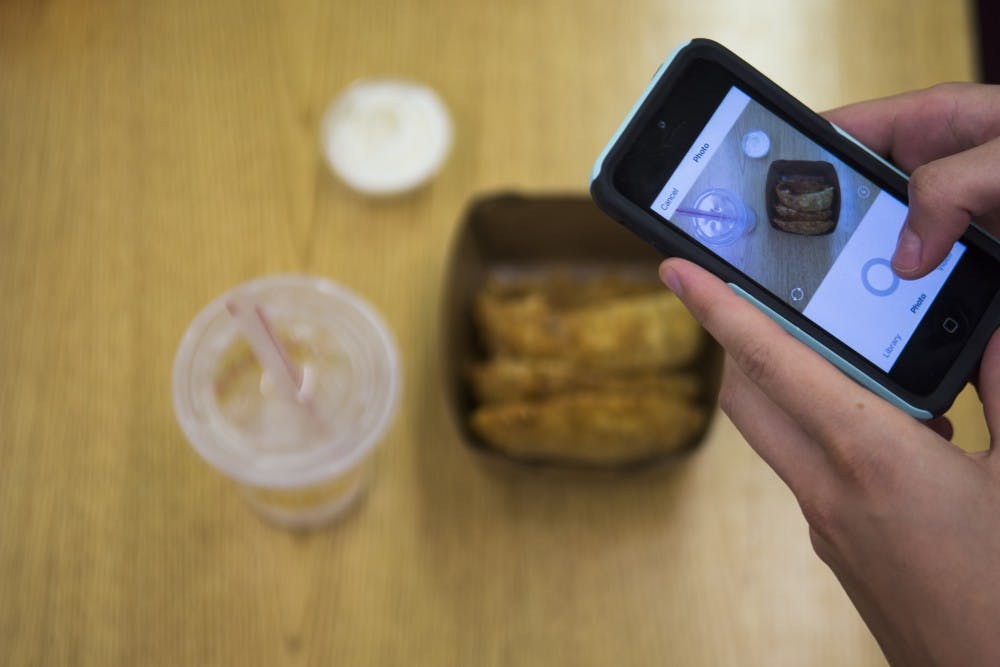With more than 400 million active users on Instagram, a Wharton researcher discovered why photography has infiltrated almost every Penn student’s daily life.
Wharton doctoral student Alixandra Barasch and her two collaborators, Kristin Diehl and Gal Zauberman, studied the effects of photography on people’s experiences. Through nine different activities, they found that generally taking photos could induce beneficial effects by increasing people’s feelings of engagement and immersion.
“Study after study, people were enjoying the experience more,” Barasch said. “As we delved into the reason why, it made people feel more immersed ... When you’re taking photos, you’re searching out the visual field, you’re looking for things to capture and that just makes you more engaged.”
In the study, more than 2,000 participants were engaged in various activities including eating lunch, watching a Rihanna concert, taking a virtual bus tour, doing arts and crafts and walking through a museum. For each experiment, researchers asked half of the group to take pictures while the other half was instructed to go about the experience without using their cameras or posting on social media.
Originally, all three researchers responded with skepticism that photo taking could be beneficial. They, along with many others, believed photography is distracting or harmful to their experiences. But contrary to their initial thoughts, Barasch and her collaborators consistently found that photo taking was beneficial to a person’s experience.
Barasch noted photo taking is not universally beneficial. In cases where the physical process of taking the photo is a hindrance, people stated that they enjoyed their experience less. Likewise, when the experience they were capturing was negative, people enjoyed it less. Additionally, taking photos during activities that are already actively engaging resulted in neither positive or negative effects on a person’s enjoyment.
The goal of taking photos is also a critical factor of its effects on a person’s experience.
“If I’m just taking a photo of a fountain or food to just remember this, there’s less stress and less anxiety to get it perfect,” said Barasch. “The types of photos that people take to share, they tend to be more posed, more presentational. All these different things, the way we want to portray ourselves to others, can have negative effects on our experience.”
Then why do casual and avid photographers keep taking photos to post on social media sites if it causes stress and anxiety? One main reason is the long term, positive effects of sharing.
“When you’re sharing the photo and you’re getting likes and people are excited about your experience, that feels really good,” said Barasch, “It’s thinking so much about how your photo is going to be received by the audience that can be harmful. That doesn’t mean you shouldn’t do it or it’s bad overall, because we get a lot of value and happiness and enjoyment from the sharing process.”









